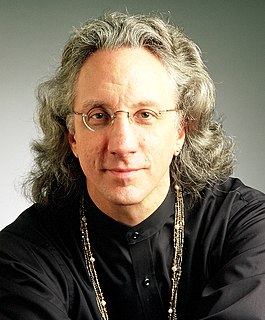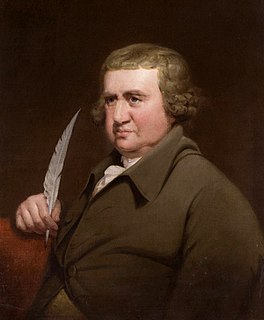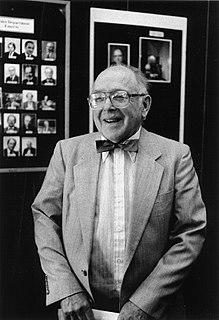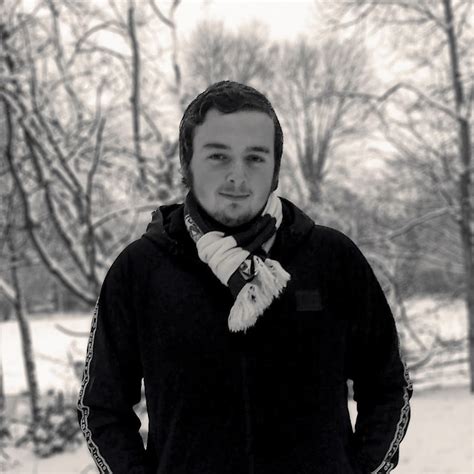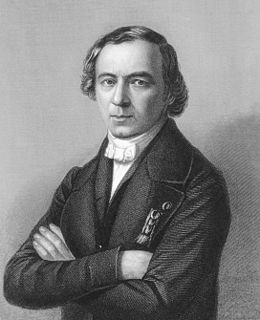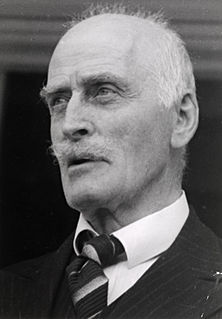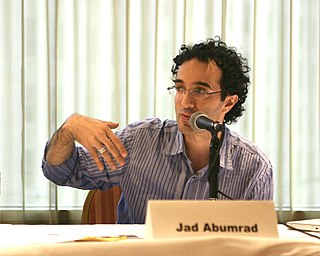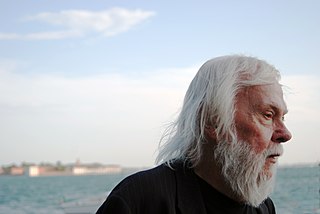Top 456 Atoms Quotes & Sayings - Page 8
Explore popular Atoms quotes.
Last updated on December 4, 2024.
I'll be looking for you, Will, every moment, every single moment. And when we do find each other again, we'll cling together so tight that nothing and no one'll ever tear us apart. Every atom of me and every atom of you... We'll live in birds and flowers and dragonflies and pine trees and in clouds and in those little specks of light you see floating in sunbeams... And when they use our atoms to make new lives, they wont' just be able to take one, they'll have to take two, one of you and one of me, we'll be joined so tight.
Mistrust is the fuel for so much mental pain, so many mental disorders. I am not talking here about the suspicions we sometimes have of one another, the distant but lurking sense that perhaps our lover lies to us, our best friend whispers behind our back. I am talking about a belief that betrayal inundates the atoms of the universe, is so woven into the workings of the world that every step is treacherous, and that below the rich mud lies a mine.
The discovery of radioactivity created a momentary chaos in chemistry and physics; but it soon led to a fuller interpretation of the old ideas. It dispersed many difficulties, harmonized many discords, and yea, more! It shewed the substance of Universe as a simplicity of Light and Life, manners to compose atoms, themselves capable of deeper self-realization through fresh complexities and organizations, each with its own peculiar powers and pleasures, each pursuing its path through the world where all things are possible.
The poet Muriel Rukeyser said the universe is composed of stories, not of atoms. The physicist Werner Heisenberg declared that the universe is made of music, not of matter. And we believe that if you habitually expose yourself to toxic stories and music, you could wind up living in the wrong universe, where it's impossible to become the gorgeous genius you were born to be. That's why we implore you to nourish yourself with delicious, nutritious tales and tunes that inspire you to exercise your willpower for your highest good.
It is conceivable that animal life might have the attribute of using the heat of surrounding matter, at its natural temperature, as a source of energy for mechanical effect . . . .The influence of animal or vegetable life on matter is infinitely beyond the range of any scientific enquiry hitherto entered on. Its power of directing the motions of moving particles, in the demonstrated daily miracle of our human free-will, and in the growth of generation after generation of plants from a single seed, are infinitely different from any possible result of the fortuitous concurrence of atoms.
So erst the Sage [Pythagoras] with scientific truth In Grecian temples taught the attentive youth; With ceaseless change how restless atoms pass From life to life, a transmigrating mass; How the same organs, which to-day compose The poisonous henbane, or the fragrant rose, May with to-morrow's sun new forms compile, Frown in the Hero, in the Beauty smile. Whence drew the enlighten'd Sage the moral plan, That man should ever be the friend of man; Should eye with tenderness all living forms, His brother-emmets, and his sister-worms.
I look up at the night sky, and I know that, yes, we are part of this Universe, we are in this Universe, but perhaps more important than both of those facts is that the Universe is in us. When I reflect on that fact, I look up — many people feel small, because they’re small and the Universe is big, but I feel big, because my atoms came from those stars.
Christmas reminds us we are not alone. We are not unrelated atoms, jouncing and ricocheting amid aliens, but are a part of something, which holds and sustains us. As we struggle with shopping lists and invitations, compounded by December's bad weather, it is good to be reminded that there are people in our lives who are worth this aggravation, and people to whom we are worth the same. Christmas shows us the ties that bind us together, threads of love and caring, woven in the simplest and strongest way within the family.
When carbon (C), Oxygen (o) and hydrogen (H) atoms bond in a certain way to form sugar, the resulting compound has a sweet taste. The sweetness resides neither in the C, nor in the O, nor in the H; it resides in the pattern that emerges from their interaction. It is an emergent property. Moreover, strictly speaking, is not a property of the chemical bonds. It is a sensory experience that arises when the sugar molecules interact with the chemistry of our taste buds, which in turns causes a set of neurons to fire in a certain way. The experience of sweetness emerges from that neural activity.
Over the last century, physicists have used light quanta electrons, alpha particles, X-rays, gamma-rays, protons, neutrons and exotic sub-nuclear particles for this purpose. Much important information about the target atoms or nuclei or their assemblage has been obtained in this way. In witness of this importance one can point to the unusual concentration of scattering enthusiasts among earlier Nobel Laureate physicists. One could say that physicists just love to perform or interpret scattering experiments.
Will a day come when the race will detect the funniness of these juvenilities and laugh at them—and by laughing at them destroy them? For your race, in its poverty, has unquestionably one really effective weapon—laughter. Power, Money, Persuasion, Supplication, Persecution--these can lift at a colossal humbug,—push it a little— crowd it a little—weaken it a little, century by century: but only Laughter can blow it to rags and atoms at a blast. Against the assault of Laughter nothing can stand. - "The Chronicle of Young Satan," Mysterious Stranger Manuscripts
Molecular biology has shown that even the simplest of all living systems on the earth today, bacterial cells, are exceedingly complex objects. Although the tiniest bacterial cells are incredibly small, weighing less than 10-12 gms, each is in effect a veritable micro-miniaturized factory containing thousands of exquisitely designed pieces of intricate molecular machinery, made up altogether of one hundred thousand million atoms, far more complicated than any machine built by man and absolutely without parallel in the nonliving world.
Nature has a drive for wholeness and has created us only in relationship like one giant superorganism. It's a fact there is a connection between atoms and all of us in relationship with each other and with our environment. In all of our societal relationships there is a bond so profound and intricate that it's impossible to say where one thing stops and another thing begins. So you see this mirrored in every aspect, from the subatomic world to the world that we're more familiar with. So competition ends up being a false creation in our society.
Science regards man as an aggregation of atoms temporarily united by a mysterious force called the life-principle. To the materialist the only difference between a living and a dead body is, that in the one case that force is active, in the other latent. When it is extinct or entirely latent, the molecules obey a superior attraction, which draws them asunder and scatters them through space. This dispersion must be death, if it is possible to conceive such a thing as death where the very molecules of the dead body manifest an intense vital energy.
By his machines man can dive and remain under water like a shark; can fly like a hawk in the air; can see atoms like a gnat; can see the system of the universe of Uriel, the angel of the sun; can carry whatever loads a ton of coal can lift; can knock down cities with his fist of gunpowder; can recover the history of his race by the medals which the deluge, and every creature, civil or savage or brute, has involuntarily dropped of its existence; and divine the future possibility of the planet and its inhabitants by his perception of laws of nature.
The words are strung together, with their own special grammar-the laws of quantum theory-to form sentences, which are molecules. Soon we have books, entire libraries, made out of molecular "sentences." The universe is like a library in which the words are atoms. Just look at what has been written with these hundred words! Our own bodies are books in that library, specified by the organization of molecules-but the universe and literature are organizations of identical, interchangeable objects; they are information systems.
Some critics thought the ontology and theory of qualities absurd. No one had ever seen these little atoms, and furthermore, how could their mere arrangement produce a noisy, colourful, world in which day followed night and animals generated their own kind? Instead of a world created, cared, for and supervised by supernatural persons, the Epicureans appeared to the theologians to be assigning everything to chance. The latter were appalled by Lucretius's view of religion as cruel and oppressive and by the Epicurean insistence that death is the end of all experience.
This is the awe-inspiring universe of magic: There are no atoms, only waves and motions all around. Here, you discard all belief in barriers to understanding. You put aside understanding itself. This universe cannot be seen, cannot be heard, cannot be detected in any way by fixed perceptions. It is the ultimate void where no preordained screens occur upon which forms may be projected. You have only one awareness here—the screen of the magi: Imagination! Here, you learn what it is to be human. You are a creator of order, of beautiful shapes and systems, an organizer of chaos.
The chemical compounds are comparable to a system of planets in that the atoms are held together by chemical affinity. They may be more or less numerous, simple or complex in composition, and in the constitution of the materials, they play the same role as Mars and Venus do in our planetary system, or the compound members such as our earth with its moon, or Jupiter with its satellites... If in such a system a particle is replaced by one of different character, the equilibrium can persist, and then the new compound will exhibit properties similar to those shown by the original substance.
The whole mass of any body is just the mass of ether surrounding the body which is carried along by the Faraday tubes associated with the atoms of the body. In fact, all mass is mass of the ether; all momentum, momentum of the ether; and all kinetic energy, kinetic energy of the ether, This view, it should be said, requires the density of the ether to be immensely greater than that of any known substance.
Atoms are weird stuff, behaving like active agents rather than inert substances. They make unpredictable choices between alternative possibilities according to the laws of quantum mechanics. It appears that mind, as manifested by the capacity to make choices, is to some extent inherent in every atom. The universe is also weird, with its laws of nature that make it hospitable to the growth of mind. I do not make any clear distinction between mind and God. God is what mind becomes when it passes beyond the scale of our comprehension.
Isn't it true that whatever isn't determined by our genes must be determined by our environment? What else is there? There's Nature and there's Nurture. Is there also some X, some further contributor to what we are? There's Chance. Luck. This extra ingredient is important but doesn't have to come from the quantum bowels of our atoms or from some distant star. It is all around us in the causeless coin-flipping of our noisy world, automatically filling in the gaps of specification left unfixed by our genes, and unfixed by salient causes in our environment.
An increasing number of people who lead mental lives of great intensity, people who are sensitive by nature, notice the steadily more frequent appearance in them of mental states of great strangeness ... a wordless and irrational feeling of ecstasy; or a breath of psychic pain; a sense of being spoken to from afar, from the sky or the sea; an agonizingly developed sense of hearing which can cause one to wince at the murmuring of unseen atoms; an irrational staring into the heart of some closed kingdom suddenly and briefly revealed.
From harmony, from heavenly harmony, This universal frame began: When nature underneath a heap Of jarring atoms lay, And could not heave her head, The tuneful voice was heard from high, 'Arise, ye more than dead!' Then cold, and hot, and moist, and dry, In order to their stations leap, And Music's power obey. From harmony, from heavenly harmony, This universal frame began: From harmony to harmony Through all the compass of the notes it ran, The diapason closing full in Man.
We all come into existence as a single cell, smaller than a speck of dust. Much smaller. Divide. Multiply. Add and subtract. Matter changes hands, atoms flow in and out, molecules pivot, proteins stitch together, mitochondria send out their oxidative dictates; we begin as a microscopic electrical swarm. The lungs the brain the heart. Forty weeks later, six trillion cells get crushed in the vise of our mother’s birth canal and we howl. Then the world starts in on us.
What magicians we are, turning darkness into light, transforming invisible atoms into dazzling theater of the world, pulling objects, (people as well as rabbits) out of secret microscopic closets, turning winter into summer, making a palmful of moments disappear through time's trap door. We learned the methods so long ago that they're unconscious, and we've hypnotized ourselves into believing that we're the audience, so I wonder where we served our apprenticeship. Under what master magicians did we learn to form reality so smoothly that we forgot to tell ourselves the secret?
Mock on, mock on, Voltaire, Rousseau! Mock on, mock on: 'Tis all in vain! You throw the sand against the wind, And the wind blows it back again. And every sand becomes a gem Reflected in the beams divine; Blown back they blind the mocking eye, But still in Israel's paths they shine. The atoms of Democritus And Newton's particles of light Are sands upon the Red Sea shore, Where Israel's tents do shine so bright.
You will find scientists who will tell you — and they deeply believe it — that we’re quantifiable. We are knowable. That if I can take a high enough resolution picture of all of you — not just your outsides, but your genes, your DNA, all the way down to your atoms — I can know everything about you and everything that you will be. There are people who believe this. And what this tells me is, no. No! All the way down, to the bottom of our thoughts, there’s just more mystery.
Every place is given its character by certain patterns of events that keep on happening there. These patterns of events are locked in with certain geometric patterns in the space. Indeed, each building and each town is ultimately made out of these patterns in the space, and out of nothing else; they are the atoms and molecules from which a building or a town is made.
As a man who has devoted his whole life to the most clear headed science, to the study of matter, I can tell you as a result of my research about atoms this much: There is no matter as such. All matter originates and exists only by virtue of a force which brings the particle of an atom to vibration and holds this most minute solar system of the atom together. We must assume behind this force the existence of a conscious and intelligent mind. This mind is the matrix of all matter.
Now the mountains were getting that pink tinge, I mean the rocks, they were just solid rock covered with the atoms of dust accumulated there since beginningless time. In fact I was afraid of those jagged monstrosities all around and over our heads. "They're so silent!" I said. "Yeah man, you know to me a mountain is a Buddha. Think of the patience, hundreds of thousands of years just sitting there bein perfectly perfectly silent and like praying for all living creatures in that silence and just waitin for us to stop all our frettin and foolin.
Why are atoms so small? ... Many examples have been devised to bring this fact home to an audience, none of them more impressive than the one used by Lord Kelvin: Suppose that you could mark the molecules in a glass of water, then pour the contents of the glass into the ocean and stir the latter thoroughly so as to distribute the marked molecules uniformly throughout the seven seas; if you then took a glass of water anywhere out of the ocean, you would find in it about a hundred of your marked molecules.
What I try to do is reinvigorate strategies and clichés I find in Hollywood movies. At a certain point I had these huge folders, each one classified according to subject matter or genre: people with guns, people kissing, Indians and cowboys falling off horses, getting shot, getting shot with arrows - almost every plot device. Then I cropped the cheap, recycled imagery to give exhausted images new meaning, or at least something other than their original meaning. I'm basically reassembling atoms to give them a meaning that's more au courant.
The idea of flux, kind of constant change, whether it be our sense of time or geological time or cosmic time. It's always there, and I think that maybe it's a way of dealing with the idea of mortality, trying to acknowledge the fact that all things change, and whereas, maybe death is the end of one state of being it's the beginning of something else. I'm not talking about going to heaven or being reincarnated as a toad, I'm talking about the idea that the molecules in our bodies, or at least the atoms, were here at the beginning of the universe, and the sense that we are basically matter.
I simply state that I'm a product of a versatile mind in a restless generation - with every reason to throw my mind and pen in with the radicals. Even if, deep in my heart, I thought we were all blind atoms in a world as limited as a stroke of a pendulum, I and my sort would struggle against tradition; try, at least, to displace old cants with new ones. I've thought I was right about life at various times, but faith is difficult. One thing I know. If living isn't seeking for the grail it may be a damned amusing game.
Natural causes, as we know, are at work, which tend to modify, if they do not at length destroy, all the arrangements and dimensions of the earth and the whole solar system. But though in the course of ages catastrophes have occurred and may yet occur in the heavens, though ancient systems may be dissolved and new systems evolved out of their ruins, the molecules [i.e. atoms] out of which these systems are built-the foundation stones of the material universe-remain unbroken and unworn.? They continue to this day as they were created-perfect in number and measure and weight.



